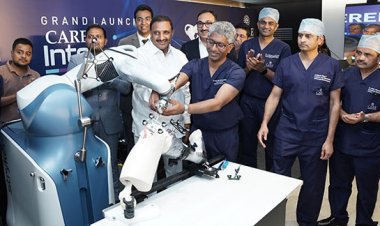New Hope for Non-Smoking Lung Cancer Patients: Scientists Unravel Treatment Resistance
For many non-smoking lung cancer patients, targeted therapies haven't offered the same life-extending benefits as they have for smokers.

This news has been particularly frustrating because targeted therapies are often seen as a more precise and less toxic alternative to traditional chemotherapy. But a recent study published in Nature Communications provides a beacon of hope, with researchers identifying a potential reason behind this treatment resistance [ScienceDaily].
The culprit seems to be a combination of two genetic mutations. The study, led by researchers from UCL, the Francis Crick Institute, and AstraZeneca, focused on non-small cell lung cancer (NSCLC), the most common form of lung cancer. While smoking is the leading cause of lung cancer, around 10-20% of NSCLC cases occur in people who have never smoked [MedicalNewsToday].
The researchers discovered that NSCLC cells with mutations in both the EGFR and p53 genes were more likely to undergo a process called whole-genome duplication. This essentially means the cancer cells double their entire set of genetic instructions. This doubling appears to be a key mechanism that allows the cancer cells to resist targeted drugs.
Professor Charles Swanton, from the UCL Cancer Institute and the Francis Crick Institute, explained the significance of the finding: "We've shown why having a p53 mutation is associated with worse survival in patients with non-smoking related lung cancer, which is the combination of EGFR and p53 mutations enabling genome doubling." [ScienceDaily]
This discovery paves the way for several exciting possibilities. First, it allows scientists to develop new diagnostic tests that identify patients at higher risk of treatment resistance due to specific genetic mutations. Second, with a better understanding of the resistance mechanism, researchers can tailor new targeted therapies that can overcome the whole-genome duplication strategy employed by the cancer cells.
The road to new treatments will likely involve further research and clinical trials. But this breakthrough offers new hope for non-smoking lung cancer patients who haven't benefited from current targeted therapies. It highlights the ongoing pursuit of personalized medicine, where treatments are designed to target the specific genetic makeup of a patient's cancer.






















